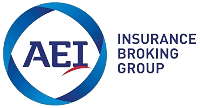Cover for how we work today
The New Year provides us with a fresh opportunity to consider how a business has changed and grown. Amongst the celebrations, it’s important also to consider your insurance needs. The way many businesses work has changed. From remote offices, to working from home, to the increased reliance on a ‘gig economy’, we know most businesses probably have unique needs to support their working environments with the right insurance. To kick off the New Year well, we’ve created a perfect list of questions to discuss with your Austbrokers Canberra representative.
1. Assets
The term ‘asset’ refers to the available properties or every kind of possession of worth that could be used to cover outstanding debts. In essence, assets are everything your company owns outright. From an insurance perspective, an asset is what the policy exists to cover. Under that policy, compensation must be given to the policy holder (in accordance with Terms and Conditions) if the policy holder makes a claim due to damage or destruction of the asset.
2. Benefit
Once a claim is received and processed by an insurer, the benefit is the amount distributed to the insured party. This may come in the form of repairing or replacing an item, but may also include a cash payout. This is sometimes called a ‘settlement’.
3. Broker
A broker is a third party who specialises in finding appropriate insurance products for clients. Brokers know the current landscape of the insurance market well, and act on their client’s behalf to retrieve quotes and read the Terms and Conditions, then negotiate to find the best possible options. Brokers are especially useful if you have complex insurance needs, or require multiple insurance products, e.g. contents insurance, fleet insurance, cyber insurance etc.
4. Coverage
Coverage refers to what’s included in an insurance policy. This can include the risks you’re insured against, any properties covered, any locations covered, the limits of compensation, and any people insured.
5. Excess
Excess refers to the amount of loss or damage you must incur personally before your insurance policy will pay any benefit. Essentially, having an ‘excess’ means you’re accepting a small part of the risk yourself. Your Certificate of Insurance should define your excess. Often times premiums can be reduced by negotiating a higher excess.
6. Hazard
A hazard refers to something that increases your risk. For example, if your fleet delivers hazardous goods, this may be considered a hazard by your insurer.
7. Indemnity
In an insurance policy, indemnity refers to the security or coverage that’s provided to you to protect against loss, damage, or injury. In certain events, legal indemnity refers to a promise someone makes not to sue you, or a promise they make to protect you by paying your damages.
8. Liability
Liability refers to the responsibility to something taken on by a person, or organisation. Insuring liability means cover for your legal costs, and compensation costs. In the event that you are proved to be the cause of harm to another business or person, liability insurance is the type of cover required to assist you with payouts.
These terms, and many more, define insurance documents. Without an expert broker, understanding the fine print can be challenging, increasing the risk of misunderstanding your policy. At Austbrokers Canberra, we have experience in navigating the complex insurance terminology that defines your Terms and Conditions. We encourage every one of our clients to take the time to carefully read their policy documents. If you have any questions regarding the terms of your policy, please get in touch with us for a clear and concise explanation.




